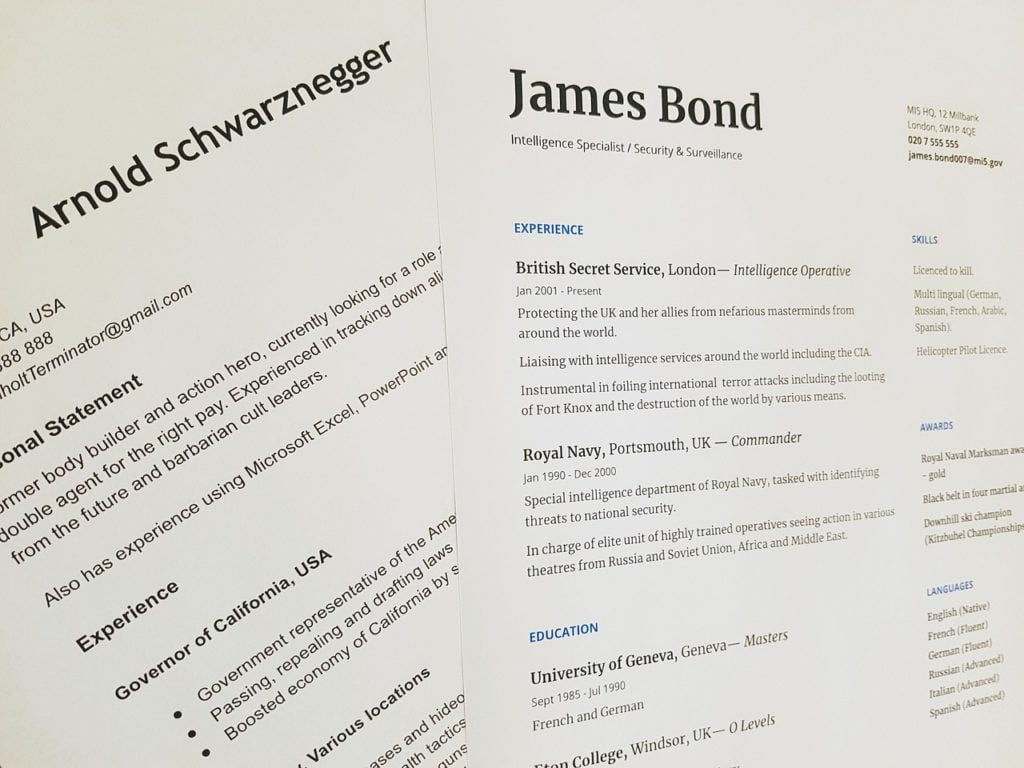“Intelligence is not expecting people to understand what your intent is; it is anticipating how it will be perceived.”
― Shannon L. Alder
Recently I had a discussion with a hiring manager on how they view the concept and the structure of the CV which then determines the outcome of that candidate, which is either a rejection or an interview invite essentially. High frequency recruitment agencies and recruiters in companies with higher turnover tend to go through CVs fast, and I mean really fast, like six to eight seconds run through each one, according to this research. There are couple of factors which immediately disqualify the candidate but this article will tackle whether this is true; and if it is, are there exceptions? We have to keep in mind that stereotypes are not born without reason but stereotyping anything should leave at least minimum room for doubt or opportunity to prove/disprove otherwise, depending on the context. In the world of recruitment, it’s always a challenge reading into someone for the sake of saving time, quality hire or just plain due date but since we’re dealing with people, there isn’t an exact rule on how someone presents their skills or character in the form of a CV. This basically means that recruiters should be more open minded than not because otherwise they’re opening themselves to potential loss of a good candidate. But what are some of the common recurring themes which red flag a CV that doesn’t necessarily mean so? Let’s dive into it.

Too frequent job change
I like to call them „grasshoppers“. This one is almost always a red flag in other people’s eyes because it signals a seeming lack of loyalty, lack of patience or just plain ignorance of what one wants out of a career. While any out of those factors might be true, a deeper look into it like an interview might prove that there are reasons behind those actions. An average work period in a single company for, let’s say, two years might not be because a person isn’t loyal, patient or ignorant of their focus, but because they reached the highest peak of their development in the company at that point. This isn’t really that surprising with high performers and employees who are very career-oriented, let alone Gen Z which represents everything fast in the shortest amount of time. Mind you, while this might be an exception to the rule, recruiters, especially in recruitment agencies which usually look for high performers, should do well to remember that. Otherwise, they risk losing a really good candidate just for being „shortsighted“, so to speak.

Education as a halo effect
Does higher education really equal the same level of knowledge or expertise? At first glance, yes, we’re all looking for coresponding educational background that matches the job description but not everything, or rarely, does anything need a paper degree confirmation in order to do the job correctly or efficiently. Intelligence or interest will almost always match the educational background over a certain period of time, it’s just a matter of company preference and how much they’re willing to invest into a quality onboarding. I, myself, have employed couple of engineers who didn’t have the education from a higher authority but are still performing just as well as those they do.
Difficult template format
This one is really important. Choosing a difficult template or a form to write the CV in can be detrimental to a candidate who applied for a vacancy next to fifty others. A recruiter might completely ignore the CV simply because of this reason alone, or at the very least could overlook a crucial information because the template format isn’t visible enough in that area. Simple is more in this regard and the more visible the information, the better. I’ve changed at least three times my CV template throughout my career just because I wanted to improve my visibility. Early on in my career, one hiring manager was even kind enough to let me know that it was difficult to read my then CV and let me know specific reasons why. That being said, even if a recruiter encounters such a CV, it’s still worth it to get a read on because not everyone has the same feeling for either aesthetics or are even thinking about this as an issue.
Takeaway
There are more variables as to why a CV would be skipped but rather than to conform to a stereotype, it’s more beneficial to ignore it because behind the curtain of the perceived could be a different story. All people are different and what might signal a suspicious behavior in terms of potential hiring has to be questioned in an interview rather than just take it at a CV’s face value. While clean and concise CVs are desired, recruitment specialists shouldn’t expect this as a norm to notice a CV. No, that would be a mistake because of accidentally skipping high quality candidates who otherwise don’t know these technicalities. Read. Every. CV.
